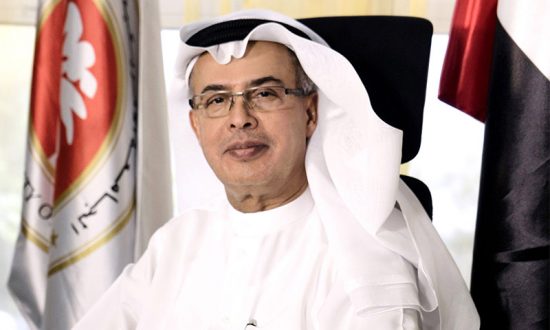Higher education in the Middle East Region is key to continued economic progress as the region transitions to knowledge-based and service-based economies. Governments in the region place great emphasis on the international rankings of universities in their countries in the ever-increasing competition for students. These rankings are, of course, heavily influenced by the academic reputation of the university, which, in turn, is strongly associated with the research profile of faculty at the institution. For this reason, many universities in the region have increased research productivity and expanded international research collaboration as strategic objectives. Our own university, the American University of Ras Al Khaimah (AURAK), is no exception. In large part because of the university’s research strategy, AURAK’s QS ranking in the UAE has risen to 10th in the UAE and top 50 in the Arab world.
However, in this focus on knowledge generation through research, universities in the region mustn’t lose focus on the centrality of student learning to the mission of higher education. Increased access to higher education in the region and the world must continue to be a high priority because higher educational attainment is key to employability and economic and social mobility. Even as universities in the region increasingly focus on research, most will remain first and foremost teaching institutions. Therefore, even as they seek new faculty with the potential to be world-class researchers, they must also be committed to ensuring that the faculty who are hired, retained, and promoted can effectively teach students. For only a small percentage of faculty will research be their primary university responsibility. The majority of faculty members’ time will be devoted to teaching and administrative tasks related to the assessment of student learning and other accreditation-related quality assurance measures.
Increased access for students brings to universities a great diversity of students – diversity not just in nationality, ethnicity, and cultural background, but also diversity in academic preparation and motivation needed for success at university studies. Many of these students are first-generation college students. Therefore, to ignore the commitment of faculty to teach is to ignore a fundamental part of their professional responsibility. A focus on teaching excellence is essential because:
- Many students are pursuing university studies in a language that is not their primary language. They are being taught by faculty for whom the language of instruction is not their primary language.
- Most faculty were not explicitly prepared in their graduate studies for university-level teaching, especially the implementation of high-impact educational practices that promote active, engaged learning by students.
- Institutions will increasingly be held accountable for student learning outcomes, especially the employment of graduates and the satisfaction of employers with those graduates.
- Successful graduates require faculty who are excellent in teaching.
Popularized by organizations such as the Association of American Colleges and Universities, high-impact educational practices include pedagogical approaches such as writing-intensive courses, collaborative assignments and projects, community-based learning, undergraduate research, internships, capstone projects, and e-portfolios. To be confident in incorporating these practices in their teaching, faculty often require professional development programming to compensate for their lack of preparation for teaching in their doctoral program of studies. With the recent move to online learning in response to the COVID-19 pandemic and the likely increased reliance on online learning even once the pandemic has passed, the need to encourage faculty to employ a multiplicity of instructional techniques that go beyond the traditional lecture and passive learning by students has become even more important.
Such a focus on teaching excellence is not incompatible with pursuing improved international rankings of the university. Teaching excellence and engagement with students can positively impact the institution’s academic reputation and employer reputation so important to QS rankings and those of other international ranking organizations. Branding of the institution can involve more than research productivity of faculty – it can also involve a commitment to teaching excellence and engagement with students to promote active learning. To ensure that this is true, universities must ensure their faculty and administrators establish connections in the international academic community through which the university’s student-centred focus, its focus on effective teaching and student engagement can be promoted. It is important to remember that international partnerships can involve more than research. For example, AURAK’s partnerships with US institutions such as the University of Texas at Arlington and Wayne State University include in addition to research collaboration a range of student-focused international learning opportunities that include high-impact educational experiences such as internships and capstone projects collaboratively developed and executed by AURAK and its American partner.
For employers, teaching excellence is reflected in on-the-job performance by graduates. The preparation of graduates is importantly determined by the relevance of the curriculum, which, in turn, is shaped by the responsiveness of faculty and administrators to industry needs. At the recent QS Maple Conference, results of the QS Employer Survey were presented. This survey revealed that characteristics most highly desired in new graduates include flexibility and skills in communication and problem-solving. Furthermore, the survey found that employers are least satisfied with recent graduates’ leadership skills, commercial awareness, creativity, and resilience. All of these skills and abilities are ones that high-impact educational practices such as small group collaborative projects, writing-intensive courses, community-based learning, and capstone projects.
As universities in the region continue their focus on high-quality collaborative research, it is important to remember that involving undergraduates in collaborative research with faculty is also a high-impact educational practice. Making increased involvement of undergraduate students in research an institutional priority, as we are doing at AURAK, can be a win-win situation. Such research collaboration promotes deep learning by students, including not only in-depth disciplinary knowledge and problem-solving and research skills, but also “soft” skills such as flexibility, communication, and teamwork. Such student-faculty research collaboration, especially in institutions that do not yet offer doctoral-level programs and in which the teaching load remains high, can also contribute importantly to faculty research productivity.
As countries in the region shift to knowledge-based and service-based economies, they are also promoting employment in the private sector and a movement away from public sector employment. With this shift comes a focus on entrepreneurship. In the UAE, entrepreneurship is a national priority that is reflected in higher education expectations, including a required course for all university students in Innovation and Entrepreneurship. At AURAK, we have gone further to make the development of an entrepreneurial mindset a focus of the university’s Quality Enhancement Plan (QEP). This is a university-wide plan to enhance the student learning experience, required as a part of the university’s application for continued accreditation by our US regional accreditor, SACSCOC.
Our QEP is called DREAMS – Developing Reflective, Entrepreneurial, Articulate, Motivated Students. The first component of the plan is DREAMS Preparation – focused on improving first-year students’ Math & English Language Skills through real-world problem-solving. The second component of the plan, DREAMS Orientation, is designed to assist students in developing an entrepreneurial mindset through curricular, co-curricular, and extra-curricular experiences. Central to the curricular emphasis on entrepreneurship is the course, University 200 – Innovation, Entrepreneurship, and Sustainability, required of all AURAK students. With its focus on design thinking, the importance of entrepreneurship to the GCC, and creative confidence in translating ideas for innovation into sustainable initiatives, this course helps lay the foundation for student capstone experiences that reflect an entrepreneurial mindset. In the third component of the plan, DREAMS Development, students take an elective course on entrepreneurship, University 400, that encourages further development and application of entrepreneurial skills to student projects, internship placements, and preparation for employment. In the context of this course, the plan is to develop entrepreneurship competitions as a signature element of an AURAK education. To assess the impact of the QEP, we measure the extent to which the implementation of the plan positively impact the general education competencies of communication and teamwork, as well as the broader-based measures of student achievement in terms of improved employability of AURAK graduates and increased satisfaction of employers with AURAK graduates.
The focus on teaching excellence and the development of an entrepreneurial mindset that we have highlighted is part of what we see as student-centred reform of higher education in the region. As universities in the region strive to achieve regional and global visibility and recognition through leading-edge research, they must also provide to their students’ transformational experiences that equip them with knowledge, skills, and dispositions that empower them to change the world for the better. A university’s alumni will always be a metric by which the quality of the institution is judged. Putting students first is critical to ensuring that universities are drivers of positive scientific, technological, political, and social change throughout the world.
About Prof Hassan Al Alkim

Prof Hassan holds a PhD in International Relations from the University of Exeter in the UK. He has served as President of AURAK since 2011 and during this time has led the university to become one of the top 10 universities in the UAE and top 50 in the QS Arab Rankings. Prof Hassan has over 30 years’ experience in Higher Education, and prior to joining AURAK he served as a Department Chair at the United Arab Emirates University (UAEU) and represented the university on many academic committees becoming known as an agent of change.
About Prof Stephen Wilhite

Prof Stephen Wilhite assumed the position of Provost and Vice President for Academic Affairs and Student Success at the American University of Ras Al Khaimah (AURAK) in August 2017. Previously, he served as Dean, Provost, and Interim President at Widener University in the USA, where he also held the rank of Professor of Psychology. Prof Wilhite has led strategic planning processes focused on the use of high-impact educational practices to encourage student engagement with their subject matter both inside and outside the classroom. He has also led efforts to reform faculty evaluation in ways that encourage faculty to become reflective teachers.




